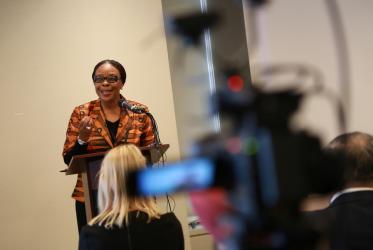Displaying 1 - 8 of 8
GETI students plant trees, in service for greener future
07 March 2018
In Zambia, foreign investors complicate “economy of life”
06 September 2017
GEM School: integrating theology and economics
05 September 2017
Churches engage in development dialogue on Africa
06 March 2013



